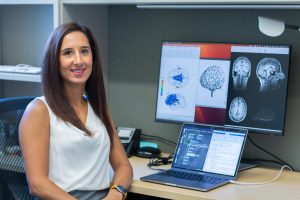CPCS-Not Closing Down
April 29, 2003
The College of Public and Community Service, seen by many as the “stepchild” of UMass Boston and a “Mickey Mouse school,” has long fought declining enrollment and negative perceptions. Rumors that it was going to be shut down circulated furiously earlier this year.
Billed as an “alternative educational institution” which “endeavors to function as an inclusive, democratic, and participatory learning community which promotes diversity, equality, and social justice,” CPCS uses “competency-based” education, in other words, grades are based on what the person is able to do.
“It’s important that the message gets out that CPCS is a very rigorous program,” says one professor of CPCS, Carroy Ferguson. At a meeting with faculty and staff in early April, Chancellor Jo Ann Gora pointed to competency-based education as the future.
CPCS experienced a slight scare late last March when rumors surfaced that the college was closing down. With a budget crisis looming and layoffs weeks away, many thought that CPCS would fall victim to cost cutting. An easy out for the university, many contended, since CPCS has been very vocally unenthusiastic about dorms and enrollment has been declining for several years (39% since 1998). Additionally, no new positions were authorized for CPCS, which factored into some people’s fears.
At the April 2 meeting, Gora addressed the issue, saying there was “no plan to dismantle the college.” Gora had been getting letters from many alumni, former faculty, friends, CPCS employees, all calling for the college to stay open. She said she resented the letters, calling them “hysterical” and “offensive.”
“Practically all of them said…first line: ‘I understand you intend to dismantle CPCS,'” said Gora. “I thought, where are they getting this information from? Who is telling them that the college is about to be eliminated?
“That’s what these letters say, David,” she said, addressing David Rubin, a retired original faculty member and a founder of CPCS. “And I found that so offensive… And I finally start reading all of the letters and thought to myself, where is this coming from, what is spawning this? And finally one of the letters, it says, ‘I understand you haven’t authorized any new positions for CPCS.’ And I thought, Aha, this is what led to this.”
Gora had earlier justified not authorizing new positions, calling CPCS “rich in faculty,” since CPCS has currently a 9:1 student-teacher ratio.
The rumors of the college closing, said Rubin, came from high and low– a College of Arts and Sciences teacher and a security guard– which was enough to prompt him to call for the letters and forward them to Gora.
It was a “lousy way to do business,” she said.
“What you should have done when those two people came to you … [was] called up me and the provost and said, ‘Two people just said to me this. Is there something I need to know?’ And then I would have said to you what I’m saying to you now, and that is, David, I have no idea where those rumors are coming from. Everybody is concerned about how we’re going to deal with this budget crisis, but certainly, no proposals are currently on the table and certainly no decisions have been made,” she said, pointing to a committee called CURE, which is looking at many proposals.
“We didn’t start the rumors,” says Rubin, agreeing that they are very damaging. He said the intent of the letters was to show the support is “widespread and deep” and to “have her become better tuned into what the college is about,” and counter the rumors, stating that he didn’t want to be labeled a troublemaker, but someone who works to help the college. Gora came to the meeting with conclusions without adequate evidence or a clear picture, Rubin said.
The letters, nearly fifty in all, came from various professors and parts of the world. One was from Professor of Geometry and Mathematics Dr. Paulus Gerdes in Mozambique, who said, “I express my hope that the outstanding activities of CPCS may continue to be valued and, if possible, reinforced by the University of Massachusetts-Boston.”
A major problem for the college, say professors, is that many newly admitted students who felt best suited for CPCS were directed to the College of Arts and Sciences. “Students who don’t fit the CPCS profile are steered to CAS,” said one senior source.
Students “who were very qualified” and allegedly turned down have fought a number of battles with Admissions, according to Rubin.
Kathleen Teehan, vice chancellor of enrollment, says of steering potential CPCS students to CAS “that just doesn’t happen,” noting CPCS is the only college with an admissions staff person. Admissions standards were changed by the Board of Higher Education five or six years ago. Earlier, younger students were discouraged joining CPCS, gearing it towards older, nontraditional students. “We took that off several years ago,” says Teehan.
A “near disaster” occurred in January, according to Rubin, when CPCS was expecting good enrollment figures and received the “bleakest” of numbers.
The incident was a result of problems with the new PeopleSoft system, which her office worked overtime and weekends to fix, according to Teehan. She and Rubin stayed in contact throughout the crisis, helping students register.
The relationship between CPCS, admissions and enrollment “isn’t broken,” said Teehan, “We just have to keep at it.”
Liliana Mickle, director of undergraduate admissions, says turning away or changing students’ minds has not been practiced in her twenty years in Admissions. In 1997, she said, they changed the application to include high school students. Criteria, such as “perseverance,” “knowledge,” and “ambition,” are the same for all students. Students who apply should have a GED, or high school diploma, or worked in the community and returned to school.
Both Teehan and Mickle agree CPCS applications have been dropping off for several years, which Mickle attributes to the “ebbs and flows” in the industries. Mickle pointed to a declining interest in the kinds of careers to which CPCS graduates are suited and budget cuts in those fields, versus something like nursing, which is in “high” demand right now.
Admissions has plans to take CPCS on the road, to libraries and area people, to run an ad on the MBTA, and send out mailings and general ads.
“Since the fall, we’ve put a lot of things in place,” said Teehan.
The April meeting left many feeling several ways. Some felt there was constructive dialogue, others smarted from what they saw as a chewing out.
Ismael Ramirez-Soto, dean of CPCS since 1995, was glad to hear the rumors were false, feeling there was “constructive” and “unfiltered” talk. “Both sides learned more about each other’s styles and perceptions, and about working with each other more.”
Distrust still lingers among some. One faculty member, as she was leaving the meeting, said she had heard the same thing in an October meeting with the chancellor, about fixing problems with Admissions, but nothing had happened. “I just don’t believe her,” she said.











































































